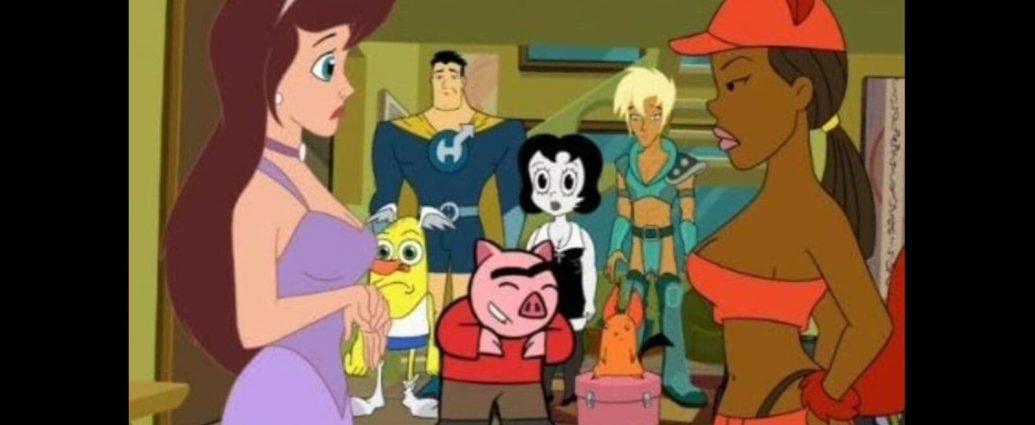Even before the reality-based genre took off, it was acting as fodder for films and TV shows. See how some of the field’s tropes – confession, control, competition – have been turned on their heads to tell a bigger story.
The precursor
The Truman Show came out in 1998, years before the reality TV explosion of the 2000s. Jim Carrey plays Truman, an affable salesman who slowly discovers that his whole life is a live reality show. Everyone’s protective but pretending. The people he’s known as family, friends and colleagues are paid actors. Even the horizon is just painted on. It’s a sensitive look at collective consciences, commodification of the human experience, and what it takes for one mind to break free.
The cringe-critique
What’s the opposite of a reality drama? An animated sitcom parodying a reality drama. Drawn Together premiered in 2004, with loud, crass, smutty stereotypes competing to evict each other from a house. There are three seasons and a 2010 movie. There’s racism, homophobia, violence and petty indignities, and this time the audience knows for certain that they’ve been storyboarded in. Think of it as a great show mocking the worst of the genre.
The low-key genius
The best thing about The Office (the UK original and the US remake) isn’t the antics. The employees of the paper company in an American small town mostly hold meetings, go on sales calls, play pranks, arrange for birthday cakes, and leave at 5 pm. It’s the reality-show premise that makes the scenes shine – the side-glance at the camera, the POV angles, the cutaway interviews and the hilarious quotidian moments. Modern Family and What We Do in the Shadows are worthy successors.
The shockumentary
You’re meant to be revulsed by Borat: Cultural Learnings of America for Make Benefit Glorious Nation of Kazakhstan (2006). Sacha Baron Cohen’s character, Borat Sagdiyev, a wide-eyed Kazakhstani journalist making a documentary in the US, is made-up. But the public’s reactions to him are unscripted and often more offensive than his own feigned ignorance. Cohen stayed in character while promoting the film, blurring the lines between real and staged storytelling. A sequel, Borat Subsequent Moviefilm, was released in 2020.
The young-adult allegory
The elimination contest format, but with a dark turn. The winner in The Hunger Games is the last person alive in an artificial forest filled with real threats. It’s a game played annually so the elite can entertain themselves, offer very occasional help, and pick a district to reward. Reality TV tropes abound — contestant backstories, voting, alliances, surprise challenges. But the story and its sequels (based on a series of novels by Suzanne Collins), use those to sell a larger political message: that true power lies in refusing to play the game.
Enjoy unlimited digital access with HT Premium
Subscribe Now to continue reading

